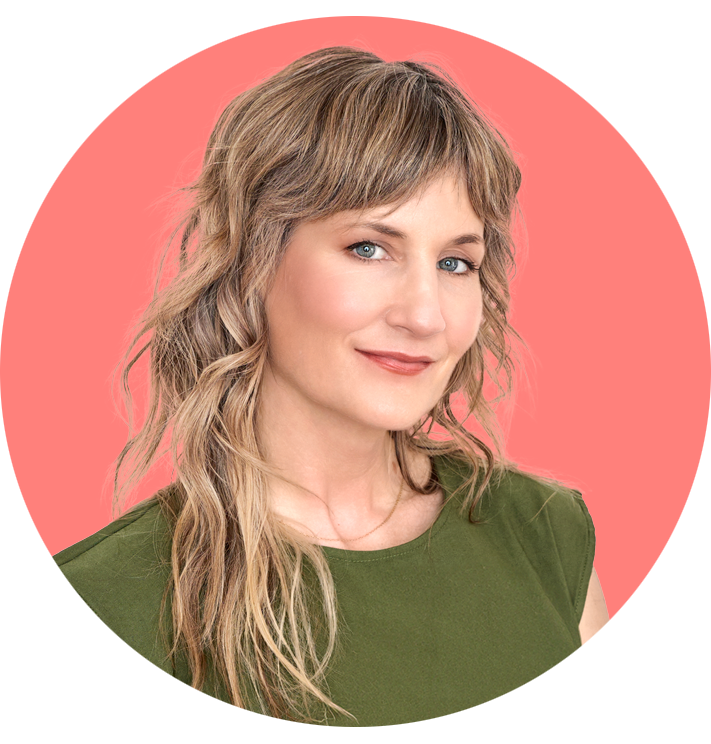Who Knew Staying Present Could Be So Simple?
“The more you are focused on time – past and future – the more you miss the Now, the most precious thing there is.”
– Eckhart Tolle
If you spend any time in wellness spaces, yoga classes, or on sites like Growing Self, you’ve probably heard the term “mindfulness” tossed around. You may have even heard that being mindful is key to living a happier, healthier life.
But what is mindfulness exactly? What are the benefits of it? And how can one begin to practice mindfulness in their day-to-day life?
Read on to find out!
What is the meaning of mindfulness?
The term mindfulness may conjure images of a Buddhist monk on a foggy mountain top, or an elite meditator sitting serenely in the lotus pose. Luckily for all of us, mindfulness is not a spiritual state that takes a lifetime of practice to “achieve.” Rather, it’s a simple tool for accessing the present moment, and it’s available to you right here, right now.
Simply put, mindfulness is a mental state that’s reached by turning one’s focus to the present moment, and the sensory input, thoughts, and feelings that are arising there.
Being mindful is:
- Feeling a cool breeze on your cheek.
- Detecting the complex notes of flavor in a sip of tea.
- Acknowledging a thought that you’re having, and the feelings it gives rise to.
- Listening attentively as your child tells you about her day at school.
- Noticing the sensations in your body during a difficult conversation.
Being mindful is not:
- Obsessing over an argument you had last week.
- Fretting about the possibility that you’ll never save enough to retire.
- Wondering whether or not your partner is angry with you. (Related: How to feel more secure in your relationship).
- Running through a mental checklist of everything you need to pack for an upcoming trip.
- Ruminating about your ex’s Instagram activity.
You get the idea. When we’re being mindful, we’re training our mental energy on the here and now, and not allowing ourselves to be carried away by moments that are already gone or that haven’t arrived yet.
Let’s Talk.
Schedule a Free Consultation Today.
Why is Mindfulness Important?
By being mindful and fully present, we’re not only living more vibrant, full lives, we’re giving our brains a break from constant time-hopping and reaping the myriad benefits of mindfulness, which include:
- Enhanced focus
- Relief from stress
- Improved sleep
- Reduced anxiety
- Improved mood
And much more. Ready to try it out? Here are some simple mindfulness training techniques to get you started:
Being Mindful: How to Be Present
Where are you right now, as you’re reading this? Maybe you’re in your office, on your sofa, or in the passenger seat of a car.
Take a look around you, and select an object. Maybe there’s a pen, or a magazine, or a rock nearby. Now, practice using your senses to fully “experience” this object. How does it feel in your hand? Is it smooth or rough, cool or warm? Do you feel it warming as you hold it? Focus on that sensation.
Now, really look at it. What do you see that you didn’t notice at first? What does it sound like when you tap it with your fingernails? Or when you brush it lightly against a surface?
While you were focusing on your object, you were being mindful. You were fully engaged in the here and now, and you were using your senses to bring your full awareness to the present moment. Your brain got a break from rumination, worry, anxiety, and stress, and you carved out a little cognitive groove that could become a well-worn path for returning to the present — if you continue to practice mindfulness.
There are other ways to access the present moment and practice being mindful, including body scans, meditations, or simply turning your focus to your breathing. With practice, you’ll be able to call your attention back to the present moment more readily, and you’ll start to reap the benefits of mindfulness in your everyday life.
Being Mindful: Check in With Your Thoughts
…[T]he stories we tell ourselves about events are what give rise to painful feelings.
Of course, you can’t spend your entire life focusing on your breath or a nearby rock. It’s inevitable that your thoughts will occasionally pull you out of the here and now, and into lines of thinking that don’t really serve you. Maybe you’re a tough self-critic, and you struggle to stop beating yourself up over minor mistakes. Maybe you deal with trust issues, and you’re constantly worrying about who is going to let you down and how.
The trick is not to “stop” these unhelpful thoughts, but to acknowledge them as they arise, and notice the meaning you’re assigning to them. Events themselves are rarely the cause of our stress, sadness, worry, or self-doubt. Instead, the stories we tell ourselves about events are what give rise to painful feelings.
Think about one of your “usual suspects,” or a situation in your life that brings up a swirl of unpleasant thoughts that you find difficult to stop. Maybe you often worry about getting fired, or you relive a falling out with a friend. What about these thoughts is so painful? Do you think that if you got fired, it would prove you’re incompetent and untalented? Do you think that your fight with your friend is evidence that you’re difficult to love, or that you’re a negative force in other people’s lives?
Now, focus on the feelings that arise in your body as you revisit these triggering thoughts. Is your stomach tight? Is your heart beating faster? What’s happened to your breathing?
The feelings that come with these thoughts, and the bodily sensations that accompany those feelings, are the product of the stories you’re telling yourself about past or (possible) future events, and not a product of the events themselves. That means you have some power to shift things, since you’re not able to control events, but you can change your interpretations of them.
So, is there another story you could reasonably tell yourself?
Maybe you’re unlikely to get fired, and even if you did, it wouldn’t say much about your competence or your talents. If it happens, it may be because of a clash of visions, or because the company is going through a restructuring, or for a thousand other, less personal reasons.
Maybe your fight with a friend has more to do with stressors they were struggling with in their own life, and less to do with your own worthiness or capabilities as a friend.
Now, how do those new thoughts feel in your body? As you change the narrative, you may notice a difference in the sensations that accompany it, like smoother breathing, or the softening of certain muscles. By practicing mindfulness, you’ve just taken some power away from a negative thought pattern, and created a more helpful pattern of thought that you can reach for in the future.
More Effortless Mindfulness
Ready to see some mindfulness in action? Watch Growing Self’s Dr. Lisa Marie Bobby as she teaches Daily Blast Live host Tory Shulman the quickest, easiest mindfulness training techniques to stay grounded in the present and cultivate inner peace.

Dr. Lisa Marie Bobby is the founder and clinical director of Growing Self. She is a licensed psychologist, a licensed marriage and family therapist, and a board-certified coach, as well as the author of “Exaholics: Breaking Your Addiction to Your Ex Love,” and the host of The Love, Happiness & Success Podcast.
Therapy Questions, Answered.
Support For Your Growth
Our expert therapists have generously created an entire library of articles, activities, and podcasts to support you on your journey of growth. Please visit our “Happiness Collections” to browse our content collections, and take advantage of all the free resources we have for you. Or, if you’d like to educate yourself about the process and logistics of therapy, please help yourself to our “therapy questions” knowledge base below. It’s all for you!
Therapy Works, But How?
Great therapy can feel like magic, but it’s actually not. Learn how meaningful and effective therapy works.
Do I Need Therapy?
Wondering if your issues going to work themselves out, or is it time to talk to a professional? Here’s how to tell when it’s time for therapy.
What is Therapy Like?
What is therapy like? Learn what happens in therapy in order to feel empowered and confident.
What Kind of Therapist Do I Need?
There are many different kinds of therapists and many different types of therapy. What kind of therapist do you need? Find out!
What To Talk About in Therapy
Not sure what to talk about in therapy? Here are some tips to ensure you get the most out of your therapy sessions.
Therapy Consultation: What to Expect
How to prepare for your first therapy appointment, and learn what to expect in therapy sessions.
Coaching vs Therapy
What’s the difference between coaching and therapy? Find out which approach is right for you.
What is Cognitive-Behavioral Therapy?
Cognitive-behavioral therapy is the “gold-standard” of effective, evidence-based therapy. Learn about CBT.
What is Talk Therapy?
How does talking about something help you make changes? Or… does it? Learn the pros and cons of traditional talk therapy.
Why Evidence-Based Therapy Matters
Effective therapy is life-changing, but some therapy is a waste of time and money. Evidence-based therapy makes the difference.
How to Find a (Good) Therapist
Not all therapists are the same. Learn how to find a good therapist (and spot the warning signs of a bad one).
Therapy for Personal Growth
There’s a difference between therapy for ”mental health treatment” and therapy for personal growth. Which is right for you…
Therapy For Healthy Relationships
Working with a true relationship expert helps you learn, grow, love, and be loved. Learn about our approach to helping you build healthy relationships.
Divorce & Breakup Recovery
Losing a relationship is uniquely painful and challenging. With the right support, you can heal, grow, and move forward. Learn about our divorce and breakup recovery services.
Guide to Online Therapy
Online therapy is just as effective but even easier than in person therapy. Here’s what to expect from good online therapy.
Denver Therapist
Explore your options for a Denver therapist who specializes in personal growth and healthy relationships.
How to Get a Therapist
Ready to try therapy? Here’s a comprehensive guide on how to get a therapist who is competent to help you.
Therapy Reviews
Curious to know more about what working with us is really like? Browse Growing Self reviews / “best online therapy reviews” from our clients.
How Much Does Therapy Cost?
Good therapy is priceless, but not all therapy is valuable. Learn the cost of therapy that’s affordable and effective.
Does Insurance Cover Therapy?
Yes, insurance covers therapy… but only sometimes. Learn when (and how) health insurance covers therapy, and when it doesn’t.
Help Someone Get Help
If you have a loved one who is struggling in their relationship, you can help them get help by “gifting” therapy. Here’s how…
More Questions? Let’s Talk.
We’re available by phone, email and chat, and happy to answer any of your questions personally. Get in touch, anytime.
Start Therapy
Start your journey of growth today. Get personalized recommendations, and have a free consultation meeting with the therapist of your choice.
